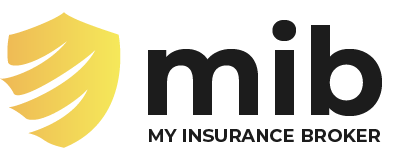What is identity theft and what are the consequences?
Identity theft could affect you in many ways and have very devastating consequences. It is usually difficult to rectify and can be very time consuming. Identity theft involves the unlawful collection or acquisition of one’s personal information for criminal purposes. It can result in identity fraud such as the impersonation of another person, or the creation of a fictitious identity and the misuse of debit or credit card data Royal Canadian Mounted Police, resulting in financial loss and difficulty obtaining credit. Other types of criminal activity include securing a mortgage or loans on your behalf, committing insurance fraud and obtaining passports or receiving government benefits. Identity thieves can also tamper with your bank accounts and open new ones and use your information to facilitate terrorist activities.
Identity theft and fraud are a growing concern across Canada and has increased in recent years. In 2014 for example, 20,611 cases of identity fraud were reported to the Canadian Anti-Fraud Centre, which totaled a loss of more than 10 million dollars.
In what ways can identity theft occur?
Identity theft can occur in many ways and includes activities such as phishing techniques (fraudulent emails), telephone scams soliciting personal information; theft of your banking information, information stolen from discarded mail and identification documents taken from your vehicle. Other information that can be used include your full name, date of birth, social insurance number, full address, mother’s maiden name, online username and password, your driver’s licence number and your signature and passport number.
How to identify if you have fallen victim to Identity Theft
If you have fallen victim to identity theft, you could have your credit card refused, receive strange emails, see odd movements in your account and be approved for things you did not apply for. Identity theft could occur to anyone at any time. Be vigilant and learn how to protect yourself from potential risks.

How to prevent Identity Theft
The Insurance Bureau of Canada and the Royal Canadian Mounted Police (RCMP) recommend that you:
Secure your vehicle and do not leave valuable items in plain sight
The glove compartment of your vehicle can be a magnet for identity thieves. Do not leave personal documents such as “vehicle ownership, liability pink slips, credit card invoices” or those containing personal information in your vehicle. Identity thieves can use this information to lease vehicles for export and other unscrupulous activities. Lock any valuable items in your trunk and keep your proof of insurance and vehicle registration certificate with you at all times.
Always park your car in a well-lit area and remember to roll up windows, lock doors and activate your security alarm when exiting. Above all, always be knowledgeable of the location of your car keys!
Leave important documents at home or locked in a safe place.
Avoid keeping important documents in your wallet or purse that you do not need. Instead, secure these items in a safety deposit box in a safe place.
If you use credit cards or have acquired loans, have credit checks done occasionally
As a safeguard measure, check your credit reports occasionally and thoroughly peruse bank and credit card statements. If you notice any anomalies, contact your financial institution immediately and report it to the credit bureaus.
Be cautious when conducting financial transactions online and when using a public computer
If you shop or conduct financial transactions online, avoid saving your credit card number. If you use a public computer, change your login and passwords frequently and create ones which are hard to decipher.
Protect your home computer with anti-spyware programs and anti-virus software
Always protect your Wi-Fi network at home with anti-spyware programs and anti-virus software and do not click on unfamiliar links. Be wary of phishing emails that will lead you to other sites to steal your personal information. If uncertain of the origin of an email, it is better to contact the company to confirm. Always be cautious with the data that you submit online and never render personal information to strangers who have requested it, via email.
Change your banking passwords regularly and be cautious when using an ATM or a PIN pad
Change banking passwords frequently and do not use a personal identification number (PIN) that can be easily identified or deciphered; never share your PIN with others. It is advisable to memorize it and never inscribe it on your card. Always shield your personal identification number and be vigilant when using your credit card to make purchases. Always keep it in full view and never leave it in the care of others.
Shred personal and financial documents before discarding them and notify financial institutions of a change of address
Shred and destroy your mail, financial documents, unused credit or debit cards and any other sensitive information before discarding it. This can be a target for identity thieves.
Be careful what you share online
Be careful what you post and share online. Do not share personal information regarding your insurance policy, telephone number or date of birth. In addition, do not disclose information regarding your location or whereabouts on social media, as this could attract burglars into your home. Activate your privacy settings online to control who has access to your information.
Further Recommendations:
- When making an insurance claim, keep abreast of the process and be on the lookout for unusual activity
- Be vigilant of your surroundings and report any strange activities in your neighbourhood to the police
What should I do if I have fallen victim to identity theft?
If you have fallen victim to identity theft, the RCMP recommends that you:
- Contact your local police and file a report
- Contact your bank/financial institution and notify your credit card company immediately
- Contact the two national credit bureaus(Equifax Canada and TransUnion Canada) and place a fraud alert on your credit reports
- It is imperative that you report identity theft and fraud to the Canadian Anti-Fraud Centre
Identity theft can strike at any moment and can leave you vulnerable to financial losses and irreparable damage. While you may not be able to predict if you will fall prey, you can take preventative measures to minimize your risks and rebound from your losses.
How can My Insurance Broker help to reduce the risks associated with Identity Theft?
My Insurance Broker has partnered with Canada’s leading insurance providers to give you access to multiple insurance markets and customized insurance products to suit your needs. My Insurance Broker offers an Identity Theft coverage as an endorsement (add-on) to your Home Insurance policy at an additional minimal cost. Identity fraud expense reimbursement coverage is also available for commercial businesses as well as non-profit organizations.
Identity theft insurance coverage will reimburse you for losses or expenses incurred, as a result of your identity being stolen. Coverage depending on the policy selected, includes credit restoration services, lost wages, lawyer’s fees, long distance telephone charges and family coverage. Identity theft is becoming more prevalent and thieves are constantly looking for innovative ways to engage in this practice. Minimize the risks associated with identity theft. Contact a My Insurance Broker adviser today! Rea
